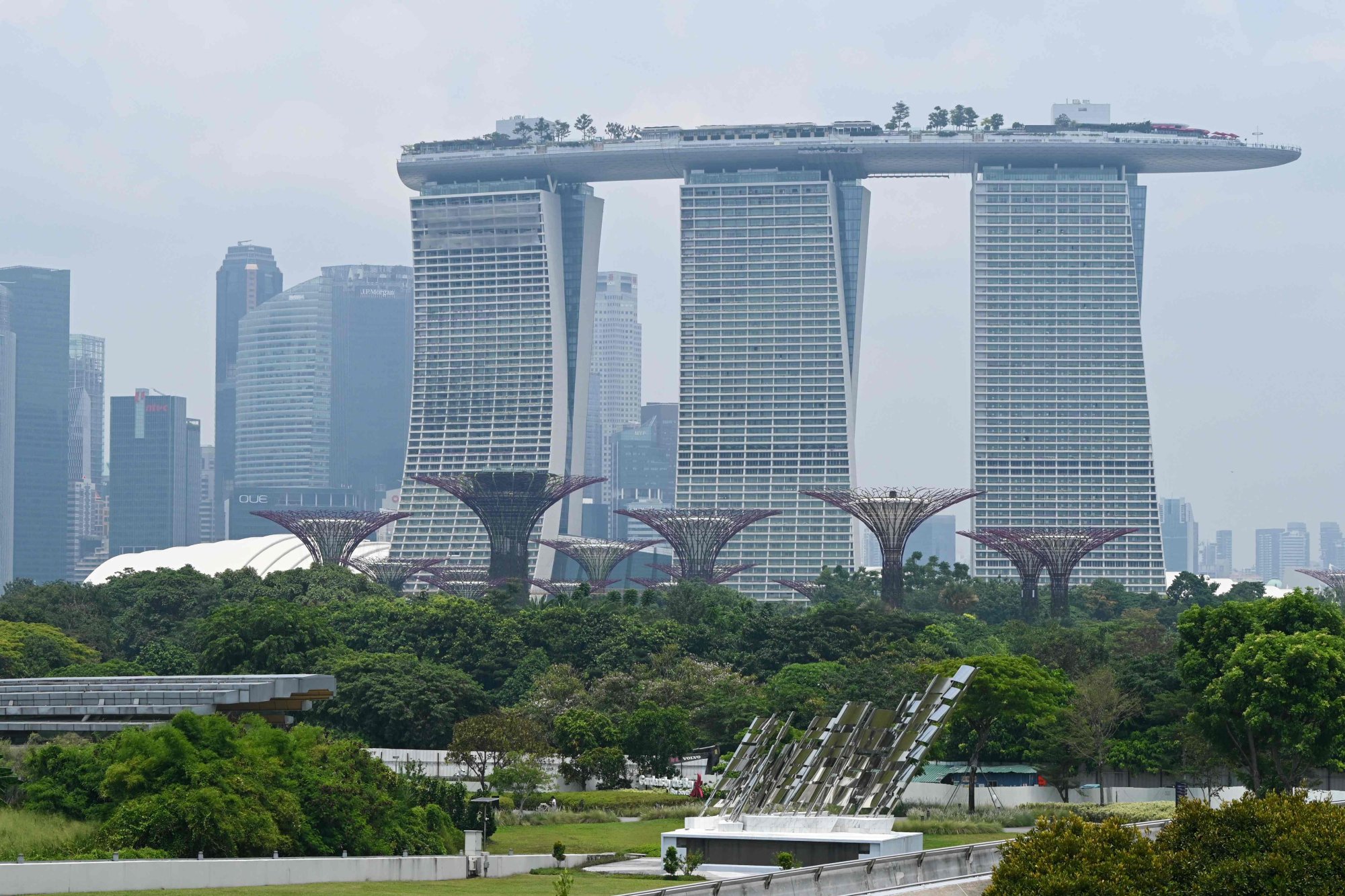The first was detained under the ISA in December 2020, and ISD said on Wednesday that he was released and issued with a Suspension Direction this month.
ISD said the 19-year-old Singaporean had made good progress in his rehabilitation and was assessed to “no longer pose an imminent security threat”.
The 16-year-old who was issued the restriction order in November first chanced upon videos online by American far-right political commentator and white supremacist Paul Nicholas Miller, who advocated for a race war, in 2022.
Singapore arrests teacher over attempt to join militant group in Palestine
Singapore arrests teacher over attempt to join militant group in Palestine
By early 2023, he had developed an intense hatred of communities typically targeted by far-right extremists, including African Americans, Arabs and LGBTQ individuals.
He also perceived illegal Arab immigrants as having committed violent attacks against white populations in Western countries.
The youth took part in several far-right online chat groups and channels, where he shared violent anti-African American videos, as doing so gave him a sense of belonging to the white supremacist community, the ISD said.
At the point of investigation, he strongly identified as a white supremacist and pro-white sympathiser, and hoped to be recruited for violent attacks by white supremacist groups overseas to “fight for the whites”.

The student had considered travelling to Western countries such as France, Italy, the US, and Russia, to participate in attacks against his vilified communities.
Specifically, he shared his interest to conduct a mass shooting in the US in 10 years’ time in a far-right online chat group.
But beyond online searches for weapons, he did not take steps to actualise his attack aspirations as he lacked the financial resources and know-how to do so.
There was no indication that the youth had tried to influence his family or friends with his violent extremist views, nor were they aware of his attack ideations.
In contrast, the earlier case who was radicalised by far-right extremist ideology had made detailed plans and preparations to conduct terrorist attacks using a machete against Muslims at two mosques in Singapore, and was detained under the ISA.
Will Singapore’s transport payment card saga weigh on voters’ minds?
Will Singapore’s transport payment card saga weigh on voters’ minds?
As part of his restriction order, the 16-year-old youth will be required to undergo a holistic rehabilitation programme aimed at countering the violent extremist ideologies that he had imbibed online.
The rehabilitation programme will be geared towards helping the youth internalise that his racial supremacist views are incompatible with Singapore’s multiracial and multi-religious society, the ISD said.
They added that the teen will receive psychological counselling by ISD psychologists to address his propensity to violence and factors that render him vulnerable to radical influences.
Such factors include his emotional regulation and self-identity issues, which had fuelled his desire to identify as a white supremacist and be part of a like-minded, seemingly powerful group.
‘Very non-Singaporean’: an abandoned mall emerges as an unlikely art haven
‘Very non-Singaporean’: an abandoned mall emerges as an unlikely art haven
ISD case officers will also engage the youth regularly to monitor his rehabilitation and work closely with his family and school to ensure that he has sufficient support.
He has also been assigned two mentors who will provide him with additional guidance and cyber-wellness skills. The two mentors are Ministry of Education-trained teachers who are volunteers from the Religious Rehabilitation Group, who have experience working with and coaching youths.
In addition, ISD is working with community partners such as the Inter-Agency Aftercare Group to explore suitable community-based programmes which will equip him with pro-social skills.
He is also not permitted to change his residence or travel out of Singapore without the approval of the Director of the ISD.
Such divisive rhetoric can create deep societal divides, amplify prejudices, and encourage acts of violence towards minorities or ‘out-groups’
ISD said that while far-right extremist ideologies have not gained a significant foothold in Singapore, the cases of these two youths serve as a reminder that Singaporeans are not immune to such ideologies, and that there is a need to maintain vigilance.
Far-right ideologies, which often espouse white supremacist, anti-Islam, xenophobic and anti-immigration beliefs, can be adapted to fit the Singaporean landscape, they added.
“Far-right extremist rhetoric promotes an ‘us-versus-them’ narrative, ‘them’ being members of other communities who are perceived to be the enemy.
“Such divisive rhetoric can create deep societal divides, amplify prejudices, and encourage acts of violence towards minorities or ‘out-groups’,” ISD said.

